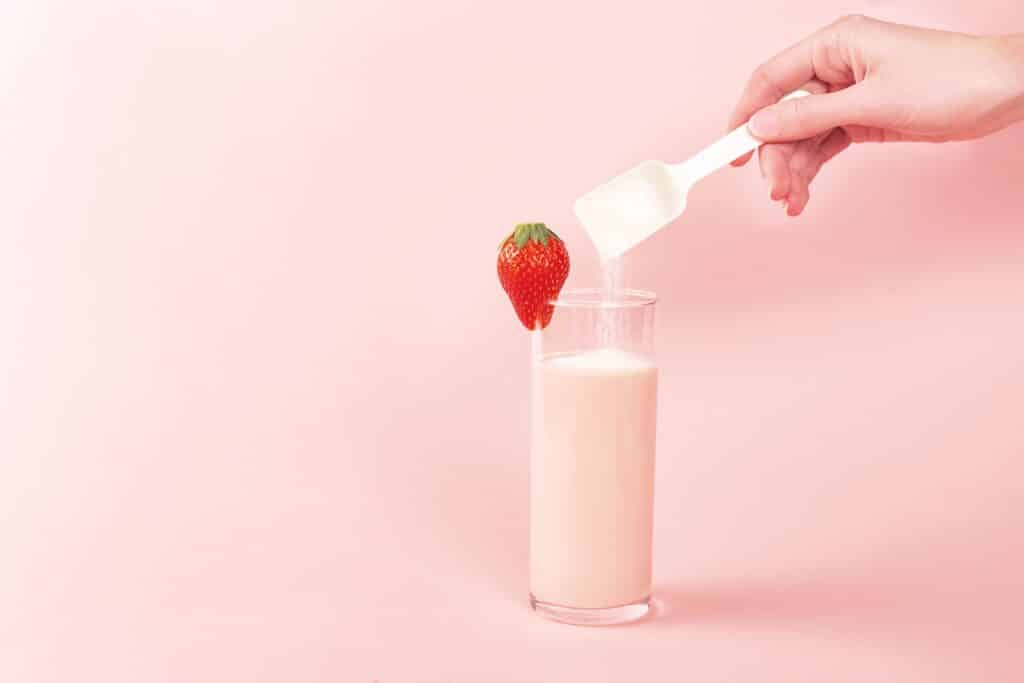Points to Consider When Advertising Supplements

Supplements are not medicines, but health foods. However, from the consumer’s perspective, unlike ordinary foods consumed for meals, they are purchased with certain expectations for personal health and beauty. Furthermore, their form often heightens these expectations more than regular foods. The law imposes strict advertising regulations on ‘medicines’, which are different from those for ordinary foods. It also imposes similar strict advertising regulations on health foods and other products that are not medicines but claim to have effects such as curing acne or constipation.
Although they are not medicines, they are recognized as entities similar to medicines, and they must be sold and advertised while constantly considering their relationship with advertising regulations. That’s what supplements are. In this article, we will explain the advertising regulations related to supplements, which are health foods and not ordinary foods or medicines.
Definition of Supplements

The term “supplement” does not have a legal definition, and is generally considered to refer to “products in the form of tablets or capsules where specific ingredients are concentrated”. Due to the lack of a clear definition, for the general public, supplements are perceived as something similar to pharmaceuticals, in tablet or capsule form, and cover a wide range of products.
On the other hand, drugs, or “pharmaceuticals” as classified by law, are clearly defined by the provisions of Article 2, Paragraph 1 of the “Act on Securing Quality, Efficacy and Safety of Products Including Pharmaceuticals and Medical Devices (Law No. 145 of 1960)” (commonly known as the former Pharmaceutical Affairs Law), hereinafter referred to as the “Pharmaceutical and Medical Device Act”. Therefore, regardless of their form, anything that does not fit the definition of pharmaceuticals under the Pharmaceutical and Medical Device Act is classified as something completely different from pharmaceuticals. In addition, the Pharmaceutical and Medical Device Act limits its regulatory targets to pharmaceuticals, quasi-drugs, cosmetics, and medical devices according to the provisions of Article 1.
From this, anything that does not fit these definitions is not subject to regulation under the Pharmaceutical and Medical Device Act. In other words, even if supplements are in a form similar to pharmaceuticals, such as tablets or capsules, they are legally not treated as “pharmaceuticals”.
The following article discusses the distinctions between “pharmaceuticals”, “quasi-drugs”, and “cosmetics”.
https://monolith.law/corporate/pharmaceutical-affairs-law[ja]
Regulations under the Japanese Pharmaceutical Affairs Law for Non-“Medicinal Products”
As such, supplements are not legally treated as “medicinal products”. However, precisely because they are not “medicinal products”, health foods such as supplements are subject to strict advertising regulations. Although we will not delve deeply into this topic this time, regardless of whether they are called supplements or not, items that are orally ingested by people under the name of food, not as “medicinal products”, and that should be considered as medicinal products based on their essence, shape, displayed efficacy, dosage, etc., are manufactured (including importation) and sold. If it is found by administrative checks that such items are being sold, they are referred to as “unapproved and unlicensed medicinal products”, and are subject to guidance and regulation by the governors of each prefecture according to the “Guidance and Regulation of Unapproved and Unlicensed Medicinal Products” (Notification No. 476 of the Pharmaceutical Affairs Bureau of the Ministry of Health and Welfare, June 1, Showa 46 (1971), to the governors of each prefecture).
The above notification describes the interpretation of medicinal efficacy in relation to advertising. According to this interpretation, for example, if you display phrases such as “for those with diabetes”, “improves cancer”, “fatigue recovery”, “improvement of constitution”, etc., health foods such as supplements will fall under “unapproved and unlicensed medicinal products”, and you need to be aware that they will be subject to guidance and regulation based on the above notification.
There are many expressions that are considered to have medicinal efficacy, and specific wording is defined by the notification. When advertising health foods such as supplements, it is important to ensure that the promotional phrases do not display medicinal efficacy. For more details, please visit the Ministry of Health, Labour and Welfare website, Health Damage Information & Unapproved and Unlicensed Medicinal Product Information[ja].
Advertising Regulations under the Health Promotion Act

The term “food” in the Health Promotion Act (Law No. 103 of 2002) (hereinafter referred to as the “Health Promotion Act”) refers to all food and drink, excluding “pharmaceuticals” under the Japanese Pharmaceuticals and Medical Devices Act. Therefore, products claiming medicinal efficacy, even if sold as food, are considered “pharmaceuticals” under the Pharmaceuticals and Medical Devices Act and do not fall under the “food” category of the Health Promotion Act. However, even for products that are sold claiming medicinal efficacy, it is necessary to prohibit false and exaggerated claims about health maintenance and enhancement effects. Therefore, Article 31, Paragraph 1 of the Health Promotion Act regulates not only “foods for sale” but also “items for sale as food”.
About the Health Promotion Act
Health Promotion Act
(Purpose)
Article 1: This law aims to improve national health by establishing basic matters for the comprehensive promotion of health improvement in response to the rapid aging of our country and changes in disease structure, and by taking measures to improve national nutrition and other health improvements.
The Health Promotion Act is a law aimed at improving national health. The background to the establishment of this law is the increasing importance of health promotion among the Japanese population due to rapid aging and changes in disease structure. Therefore, it establishes basic matters for promoting health improvement and takes measures to improve national nutrition and other health improvements. Thus, the Health Promotion Act aims to promote and improve national health, while the Pharmaceuticals and Medical Devices Act aims to improve public health by taking necessary measures for the regulation and promotion of research and development of pharmaceuticals and other products.
Among the provisions of the Health Promotion Act, the “Points to Note Regarding Health Foods under the Premiums Display Act and the Health Promotion Act[ja]” (Established on June 30, 2016 by the Consumer Affairs Agency, hereinafter referred to as “Points to Note”) defines the claims prohibited by Article 31, Paragraph 1 of the Health Promotion Act regarding health foods.
Health Foods
(Prohibition of Exaggerated Claims)
Article 31: No person shall make a claim that is significantly different from the facts or that is likely to significantly mislead people regarding the effects of health maintenance and enhancement and other matters prescribed by Cabinet Office Ordinance (referred to as “health maintenance and enhancement effects, etc.” in the next article, paragraph 3) when advertising or otherwise displaying items for sale as food.
2. The Prime Minister must consult with the Minister of Health, Labour and Welfare in advance when establishing, amending, or abolishing the Cabinet Office Ordinance of the preceding paragraph.
Article 31, Paragraph 1 of the Health Promotion Act prohibits false and exaggerated claims about health maintenance and enhancement effects, etc. for items sold as food. In response to this, the Points to Note define items that display health maintenance and enhancement effects, etc. as defined by the Health Promotion Act and are sold as food as “health foods”. Health foods are not pharmaceuticals, so they cannot claim medicinal efficacy under the Pharmaceuticals and Medical Devices Act, as mentioned above. Moreover, they cannot make claims that significantly differ from the facts about health maintenance and enhancement effects, etc. under the Health Promotion Act. The prohibition of false and exaggerated advertising is due to the risk of serious obstacles to health maintenance and enhancement from the perspective of national health, as the use of foods recognized as health foods has increased with the growing health consciousness of the public in line with the aim of improving national health, as stated in Article 1 of the Health Promotion Act, and long-term and continuous intake is recommended, and citizens who believe this may miss appropriate medical opportunities.
Types of Health Foods
Health foods refer to all items that are widely sold and used as foods that contribute to health maintenance and enhancement. In order to appropriately display health maintenance and enhancement effects, etc., there is a “health function food system” that meets the standards for safety and effectiveness set by the government.
- Foods for Specified Health Uses (individual approval system)
- Foods with Nutrient Function Claims (self-certification system)
- Foods with Function Claims (notification system)
- So-called health foods that do not fall under 1. to 3.
Supplements are generally treated as “so-called health foods” in the same way as regular foods, but “Foods for Specified Health Uses” that have received approval, “Foods with Nutrient Function Claims” that have been self-certified, and “Foods with Function Claims” that have been notified can each display health maintenance and enhancement effects, etc. in the prescribed manner.
Claims as Foods for Specified Health Uses cannot be made without the permission of the Commissioner of the Consumer Affairs Agency, regardless of whether they constitute false and exaggerated claims (Article 26, Paragraph 1 of the Health Promotion Act), and claims as Foods with Health Functions must be made in accordance with the Food Labeling Standards, regardless of whether they constitute false and exaggerated claims (Article 9, Paragraph 1, Item 10, and Article 23, Paragraph 1, Item 8 of the Food Labeling Standards). At the same time, claims that do not comply with these Food Labeling Standards may fall under false and exaggerated claims, etc. under the Health Promotion Act.
Advertising Regulations for Supplements (Health Foods)

So, what kind of advertising regulations are imposed on supplements, which are classified as health foods, under the Japanese Health Promotion Act?
(Prohibition of Exaggerated Display)
Article 32-2
No one shall make a display in advertising or otherwise regarding a product for sale as food that significantly differs from the truth or misleads people about matters related to health maintenance and promotion and other matters stipulated by the Ministry of Health, Labour and Welfare (hereinafter referred to as “health maintenance and promotion effects, etc.”).
In this article, the exaggerated display that is explicitly prohibited is a display in advertising, etc., about a product sold as food, regarding the effects of health maintenance and promotion, etc., that ① significantly differs from the truth, or ② significantly misleads people. The judgment of whether a display is ① significantly different from the truth or ② significantly misleading is based on the impression and understanding that consumers receive from the entire content of the display.
First, the judgment of what constitutes “significantly” is made according to each advertisement, etc. For example, if the general consumer knows the difference between the content written in the advertisement, etc., and the actual effect obtained when consuming that food, and it is judged that “they would not be enticed to purchase that food,” it is considered “significant.” Also, “different from the truth” refers to cases where the effect emphasized in the advertisement, etc., and the actual effect obtained are different. For example, this includes cases where a display such as “It has been proven that you can lose X kilograms in three months,” is made despite the lack of sufficient experimental results or other evidence.
On the other hand, “misleading people” refers to cases where there is a discrepancy between the impression and expectation of health maintenance and promotion effects, etc., recognized from the advertisement, etc., and the actual effect obtained. For example, this includes cases where only favorable descriptions are quoted, ignoring inconvenient descriptions in the academic data that serve as the basis, in the advertisement, etc. Specifically, displays such as “cures cancer,” and displays regarding foods that claim slimming effects, such as “wraps up excess fats and carbohydrates consumed and excretes them with feces,” which suggest that the absorption of carbohydrates and other substances consumed through meals can be inhibited and excreted from the body, will be requested to be deleted (Food Safety News No. 1208001 dated December 8, 2004 (Heisei 16)). These specific examples are likely to be judged as violating the legal notice as displays that do not comply with the food display standards, regardless of whether they are false exaggerations, those that claim medicinal efficacy, and can be said to be dangerous expressions.
The following article provides a detailed explanation of the advertising regulations for cosmetics.
https://monolith.law/corporate/regulations-on-hyperbole[ja]
Effects of Violating the Prohibition of Exaggerated Display
The Health Promotion Act stipulates the following measures for cases where a display that significantly differs from the truth or significantly misleads people about matters related to health maintenance and promotion effects, etc., is made regarding a product sold as food, in accordance with the provisions of Article 32-2.
(Recommendations, etc.)
Article 32-3
The Minister of Health, Labour and Welfare may make a recommendation to a person who has made a display in violation of the provisions of the preceding article to take necessary measures regarding the display, when it is recognized that there is a risk of a significant impact on the promotion of national health.
2 The Minister of Health, Labour and Welfare may order a person who has received a recommendation under the preceding paragraph and has not taken the measures related to the recommendation without justifiable reasons to take the measures related to the recommendation.
3 Omitted
As such, if it is recognized that there is a risk of a significant impact on the promotion of national health due to an exaggerated display, the Minister of Health, Labour and Welfare can first make a recommendation to take necessary measures regarding the display (Health Promotion Act Article 32-3 Paragraph 1). Next, if the person who received this recommendation does not take the measures related to the recommendation without justifiable reasons, the Minister of Health, Labour and Welfare can order the person to take necessary measures regarding the display (Health Promotion Act Article 32-3 Paragraph 2).
Article 36-2
A person who has violated an order based on the provisions of paragraph 2 of Article 32-3 shall be punished by imprisonment for not more than six months or a fine of not more than one million yen.
And if you do not comply with the order, you will be punished by imprisonment for not more than six months or a fine of not more than one million yen. In addition to the Health Promotion Act, which regulates the display of “health foods” as described above, there are other laws such as the Pharmaceutical Affairs Act, the Food Labeling Act, the Act against Unjustifiable Premiums and Misleading Representations, the Food Sanitation Act, the JAS Act (Act on Standardization and Proper Quality Labeling of Agricultural and Forestry Products), and the Specified Commercial Transactions Act. If these regulations are violated, you may be subject to other administrative measures.
Summary
As discussed above, ‘health foods’ such as supplements, which are sold as foods that raise certain expectations for health and beauty, are subject to strict restrictions on their expressions. These restrictions are based on the ‘Japanese Health Promotion Act’ and the ‘Japanese Pharmaceuticals and Medical Devices Act’, as well as the ‘Japanese Food Labeling Act’, which prohibit exaggerated advertising, displays of medicinal efficacy, and expressions that violate food labeling standards. Essentially, anyone who conducts promotional advertising, not limited to sellers, must comply with these regulations. Therefore, it is necessary to pay careful attention to the wording used in advertisements.
Category: General Corporate





















